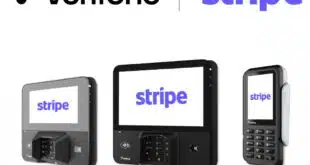By John Stewart
@DTPaymentNews
While many experts have cited anecdotal evidence that more consumers would adopt and use mobile wallets if they could earn, manage, and redeem loyalty points within a payments app, survey data is now emerging to show this proposition may very well be true.
Some 94% of consumers who belong to loyalty programs would use a mobile wallet more frequently if they could earn or redeem points or miles with each transaction, according to results of a survey of 1,500 loyalty members released Monday. The survey was conducted by Points International Ltd., a Toronto-based vendor of loyalty software, over the spring and summer.
The survey results come as mobile-payments services, especially those offered by technology giants like Alphabet Inc. (Google), Apple Inc., and Samsung Electronics Co. Ltd. struggle with adoption and usage. Apple Pay has been commercially available for two years, while Samsung Pay and Alphabet’s Android Pay debuted a year ago. Meanwhile, proprietary, loyalty-focused payments apps like the one offered by Starbucks Coffee Co. have racked up impressive results.
As executives at Points see it, what’s ailing mobile payments generally is a scarcity of the loyalty programs that have long been available on plastic cards. “That’s something we have been hypothesizing, that one of the reasons wallets aren’t catching on as fast as everyone thought they would is the absence of loyalty programs. We wanted to prove that out,” Danielle Brown, vice president of marketing at Points, tells Digital Transactions News.
The Points survey found that 29% of the surveyed consumers had not performed a mobile transaction in the prior year. Among the abstainers, security fears rank as the top reason, at 47%, followed closely by a belief that payment cards suffice. This is despite the introduction of such features as fingerprint authentication to protect wallet access.
Similarly, when asked what improvements they’d like to see in wallets, 62% ask for stronger security. But nearly as many, 58%, want to see more loyalty programs and 49% ask for more-relevant deals from merchants. Another strong request, at 63%, is for more stores to accept mobile wallets.
Asked about what “purchasing feature” they’d like to see, 79% cite payment security, but “integrated loyalty programs,” at 61%, comes next. Ranking first is “ease of payment,” at 84%.
Consumers in the survey strongly favor groceries as the place where they’d most like to earn (54%) and redeem (38%) points. On the “earn” side, gas stations (19%) come next, followed by restaurants and bars (12%). On the “redeem” side, hotels and airlines (20%) come second, followed by gas stations (18%).
In a result that could favor general-purpose apps like those from the tech giants, fully 60% of respondents said they would prefer a single app to access all their loyalty programs, rather than a multitude of such apps. Three-quarters of the respondents belong to between one and 10 programs, while 17% belong to between 11 and 20.
“Developers, wallet providers, and merchants can attract and retain more customers by finding ways to keep loyalty points, miles, expiration dates, and more organized across programs,” Points notes in the survey results. Adds Brown: “That notion of carrying many wallets is pretty cumbersome. The wallet that will rise above is the one that will offer consolidation.”
But not all rewards programs are created equal when it comes to encouraging more wallet usage. The stronger support for loyalty programs than for more-relevant deals leads some observers to argue that the emphasis should lie with points programs rather than offers.
“The first priority should be redeeming points at the point of sale,” notes Aaron McPherson, an independent payments analyst, via email. “Amazon allows you to do this [online] by linking an American Express card; once you do, you can redeem membership rewards points during the checkout process. We need this capability to be much more widespread, hopefully without the need for bilateral deals like Amazon has with American Express.”





